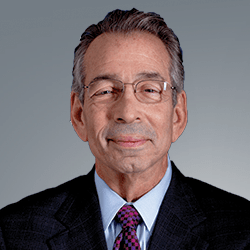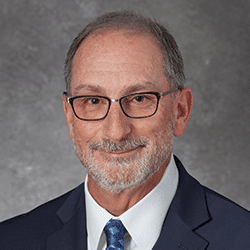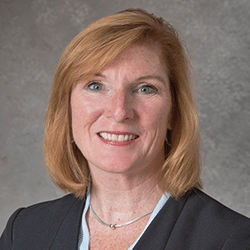Mediating personal injury, commercial and family law disputes requires substantive legal knowledge — but not that alone. Connection in mediation is crucial. Because mediation is a highly personal process that requires trust among all involved, mediators must also make every effort to connect with parties and understand them, including their preconceptions, life experiences, intuitions and views[1], to resolve their disputes. Here’s how they do it.
Leveraging a Common Background in Mediation
A common background between a mediator and the parties provides a natural touchstone that helps them create a spontaneous, easy rapport at the start of a mediation. Mediators seek out, embrace and lean into these foundational connections to defrost tensions and encourage the parties to trust the process — namely, that their mediator will understand them during it.
This point of immediate commonality may be ethnic and cultural. Both Hon. Stuart A. Nudelman, (Ret.) and Hon. William J. Haddad, (Ret.), senior mediators and arbitrators at ADR Systems, have cited how their respective Jewish and Middle Eastern heritages have equipped them with shared experiences and even a kind of shorthand they have leveraged to communicate with parties from similar backgrounds. Their heritages have even been one of the reasons they were selected to mediate the parties’ dispute.
“In certain cases — cases involving parties from a minority background or where cultural differences affect the issues — it helps to have a mediator in whom the parties see themselves,” said Judge Haddad, recalling a trucking accident case he mediated several years ago. The plaintiffs were, like Judge Haddad, Arab Americans, and before working with him, they were extremely reticent to settle. “What we had in common helped them feel that they could trust me to understand their case and them in ways others, they feared, would not. And the case settled.”
The common background between a mediator and the parties can also be more idiosyncratic. Hon. Kay M. Hanlon, (Ret.), senior mediator and arbitrator at ADR Systems, has settled cases in which her background as a woman raised in a small town in Illinois and her experience as the mother of a veteran have helped her connect with parties.
“Some parties are from small towns and may not know what to expect from a Chicago judge,” said Judge Hanlon. “But when they learn I grew up in southern Illinois, they open up and realize I understand the attitudes, experiences, dispositions and values they have.”
She added that many attorneys, litigants, and adjusters have children who are serving, have served, or have been treated at a veteran’s hospital. “It’s a shared experience that naturally comes up during mediation and creates a connection between them and me.
Social science research into the psychology of mediation attests to what our neutrals have experienced on this topic. Parties to a dispute can, in part, feel more comfortable during their session when they share “some aspect of their identity with [the mediator] guiding the process.” That commonality may be similarities of appearance, experience, temperament, personal background, or knowledge base — anything that gives parties, and especially those from underrepresented groups, confidence that their mediator has understood them, “considered the[ir] views … and tried to take them into account in thinking about how to respond to the issues.”
Remaining Emotionally Sensitive in Mediation
Cases do not settle only because parties are satisfied with the terms of the deal. They also settle because mediators are tuned into the emotions that parties are feeling during mediation and seek to help them meet their emotional needs in ways that guide the case toward settlement.
Both Judge Nudelman and Judge Hanlon — like many of the neutrals on our panel — began their legal careers in public service: Judge Nudelman as a public defender, representing poor and indigent parties, and Judge Hanlon in the Cook County State’s Attorney’s Office, dealing with many fraught, sexual abuse cases that she now mediates at ADR Systems.
“Prior experiences like these—even early in our careers—deeply inform our work as mediators,” said Judge Nudelman. “They heighten our awareness of the issues on both sides while encouraging our empathy toward the ordeal experienced by an injured party. That’s vital because what we do depends both on the substance of a case—and how that informs negotiations—and on how the case affects individuals: what it brings up in them and how that can help or hinder settlement negotiations.”
Judge Hanlon recently mediated a case in which her ability to manage and direct the emotions of both the plaintiff and defendant was essential to settling the matter. Due to a medical episode while in her car in a parking lot, the defendant struck the plaintiff. Litigation ensued, and the women’s attorneys, understandably, would not let them communicate directly—but both deeply desired it: the plaintiff to find closure in the wake of her injuries and the defendant to convey her remorse and apologies for what transpired. That they had not been able to see and speak with one another—except through lawyers—was a deep point of pain for them, Judge Hanlon recounted.
“I made a gut call during that case,” said Judge Hanlon. “My intuition told me that these women needed to be in the same room together and talk or this case was not going to settle and the pain both felt would linger unresolved.” When she proposed this meeting of the parties, both agreed, but both wanted it to happen without their attorneys present: Only the two of them and Judge Hanlon in the room. “In that room, the women embraced and cried for a long while. But very shortly after returning to their attorneys, the case settled.”
Cultivating an Open Mind in Mediation
To every mediation, mediators at ADR Systems bring binders, accordion folders and packets of submission material that they have read, annotated, tabbed and highlighted. They strive to understand the history and facts of the case and the applicable law as best they can, but they do not know everything.
“Parties’ positions in mediation often involve intangibles that go beyond monetary considerations,” said Hon. F. Keith Brown, (Ret.), senior mediator and arbitrator at ADR Systems. “While the financial offer might be appropriate, emotional elements can play a crucial role. A lack of a gesture from one side indicating a willingness to adjust demands can provoke a negative emotional response. Conversely, the presence of a company representative demonstrating a serious intent to settle can elicit a positive emotional reaction.”
Judge Brown further highlighted that communication between parties might be distorted or misunderstood due to cultural differences. These subtle variations in behavior or expectations can lead to differing interpretations.
“My initial task in any case is to set aside my preconceived notions, listen to those who have experienced the events, and ask probing questions,” said Judge Brown. “This approach allows me to understand the nuances, gather insights beyond the written submissions, and form a well-rounded view of the case and its participants.”
Intentional open-mindedness is vitally important to mediation. As noted by mediation scholar Maria R. Volpe, mediation is “a field where perceptions and experiences are an important part of the work itself.” As such, she explained, “individuals come to … mediation with their own perspectives and perceptions [and] … rely on the mediator to be impartial in helping them determine their outcomes.” The risk, otherwise, is one of bias. From a psychological perspective, if a mediator is perceived as biased, that can impair the “procedural justice” of the mediation process. Trust may become an issue, and perceptions that parties were treated courteously, respectfully and fairly may be impaired. Intentional open-mindedness and an eagerness to listen to the parties function as a ballast against that risk, leading to better mediations and, in all likelihood, more settlements.
Final Thoughts
Conflict is inevitable in our human experience, but the mediation process helps parties to disputes bridge gaps that have kept them apart or close them in agreeable ways. One of the keys to that resolution is the connection between a mediator and the parties. Mediators do their best to connect with the parties through commonalities, remain sensitive to their emotions, and think about the case with an open mind in order to help settle it. It’s challenging work that requires more than just legal knowledge. But our neutrals are committed to it.
………….
Hon. F. Keith Brown, (Ret.) has extensive experience in settling personal injury, workers’ compensation and commercial matters. As a mediator, he is known for his keen ability to easily connect with people and promote productive communications between all parties. Judge Brown is a beloved pillar of the community, who has been recognized numerous times for community service.
Request Judge Brown’s Availability
Hon. William J. Haddad, (Ret.) has spent decades practicing law. Judge Haddad led a civil litigation firm for 18 years, served as a company president and spent 10 years as a Law Division judge in the Circuit Court of Cook County. His broad background allows Judge Haddad to resolve a wide array of commercial and personal injury disputes. Judge Haddad is very active in the Chicago legal and business community and has received numerous awards for his service.
Request Judge Haddad’s Availability
Hon. Kay M. Hanlon, (Ret.) has expertise in resolving personal injury actions such as medical malpractice, mass torts and product liability, as well as commercial actions such as legal malpractice, eminent domain and subrogation. As a jurist and neutral, Judge Hanlon is always prepared and ready to listen attentively. Her open and friendly demeanor is known throughout the legal community. Her personality is tailor-made for her work as a mediator and arbitrator.
Request Judge Hanlon’s Availability
Hon. Stuart A. Nudelman, (Ret.) is a senior mediator and arbitrator at ADR Systems. He is highly experienced in commercial, personal injury and complex construction matters, among many others. He has resolved more than 2,000 mediations and arbitrations throughout the United States in the past eight years.
View Judge Nudelman’s Full Bio
Request Judge Nudelman’s Availability
ADR Systems, It’s Settled.®
………….
[1] See generally Posner, Richard A. How Judges Think. Harvard University Press, 2010, pp. 65-75.





